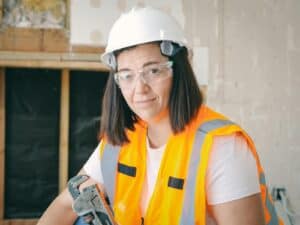Plumbing for Everyone: Building the Skills for a Stable Career
Key Takeaways:
- Plumbing is a vital trade offering numerous benefits and career stability.
- Acquiring plumbing skills involves both practical training and theoretical knowledge.
- Plumbing careers are in demand across various sectors, ensuring job security.
- Becoming a plumber may be a flexible career option that fits various schedules and learning preferences.
Table of Contents:
- Introduction to Plumbing as a Career
- The Skills You Need to Succeed
- Training and Education Pathways
- The Job Market and Opportunities in Plumbing
- The Importance of Certifications and Licenses
- Career Growth in Plumbing: A Look at Long-term Prospects
- Final Thoughts on Choosing a Plumbing Career
Introduction to Plumbing as a Career
Plumbing is a vital profession that ensures healthy living environments by efficiently handling water and waste systems. It is a crucial part of modern civilization, providing job security and a sense of accomplishment. With a constant demand for skilled professionals, plumbing is an integral trade that keeps homes, businesses, and communities functioning properly. For those interested in this essential profession, it offers a stable, rewarding career path with numerous opportunities for advancement. In-depth instruction is given to prospective plumbers who enroll in programs like this one, assisting them in gaining the fundamental abilities and information required for success in the industry. For more details, visit https://abcksmo.org/education/plumbing-program/. This guide delves into the multifaceted aspects of becoming a plumber, including required skills, educational pathways, and abundant job opportunities.

The Skills You Need to Succeed
Success in plumbing requires a broad skill set. Technical skills such as understanding building plans and working with various plumbing materials are just one aspect. Crucially, plumbers must possess problem-solving abilities to tackle unexpected challenges and customer service skills to interact sympathetically with clients. Attentiveness to detail ensures that installations and repairs are performed correctly, while basic math skills support accurate calculations involved in system sizing and material costings. Understanding state and local plumbing codes is fundamental for safety and compliance.
Training and Education Pathways
Aspiring plumbers have multiple educational routes to consider. Apprenticeships offer an in-depth learning experience through on-the-job training alongside seasoned professionals who mentor novices in practical, real-world environments. Technical schools typically provide structured programs that blend hands-on experience with comprehensive theoretical coursework, ensuring a well-rounded education. Moreover, many institutions boast partnerships with local businesses that enhance the learning experience, offering invaluable networking opportunities. Each educational pathway is designed to equip students with the necessary knowledge and skills to excel in the plumbing trade.
The Job Market and Opportunities in Plumbing
As a career, plumbing stands out for its stability and the growing demand for skilled professionals across residential, commercial, and industrial sectors. Old infrastructure requires skilled maintenance, while new constructions demand expert plumbing system installations. Given these realities, the need for individuals who can adeptly maintain and install plumbing systems is more critical than ever. This enduring industry stability provides a secure future for those pursuing plumbing careers. Furthermore, innovative plumbing technologies and water conservation systems expand job roles, allowing plumbers to specialize in cutting-edge, eco-friendly solutions.
The Importance of Certifications and Licenses
Acquiring the appropriate certifications and licenses is indispensable for any professional plumber. These credentials testify to a plumber’s competence and open doors to higher-paying positions and greater responsibilities. Regulations in most regions require plumbers to undergo a certification process tailored to industry standards, emphasizing safety and quality. Holding these credentials solidifies a plumber’s credibility among potential employers and customers and ensures adherence to necessary regulations, safeguarding public health and safety.
Career Growth in Plumbing: A Look at Long-term Prospects
The plumbing field is ripe with growth opportunities. With experience, plumbers can advance to supervisory roles, start their businesses as independent contractors, or even specialize in irrigation systems or green technology. This growth potential allows individuals to build lifelong careers, offering increasing rewards and new challenges. Advanced training and certifications further accelerate career progression, ensuring that plumbers remain competitive and able to capitalize on emerging industry trends.
Final Thoughts on Choosing a Plumbing Career
Selecting a career in plumbing is more than a job choice—it is embracing a craft vital to society. Plumbers are essential to the upkeep of contemporary civilization’s infrastructure. This field offers an occupation and a stable, meaningful career filled with opportunities for personal and professional growth. To stay informed about the responsibilities and trends shaping the future of plumbing, read more about the evolving job landscape here. With its robust prospects, a plumbing career promises personal fulfillment and a profound impact on our communities.

